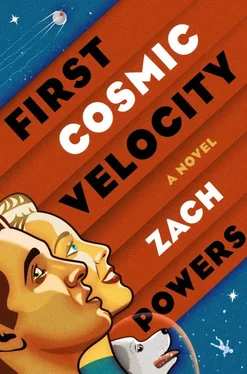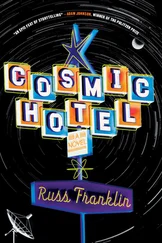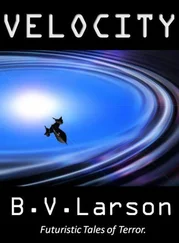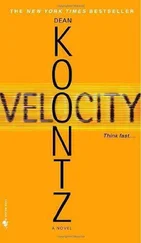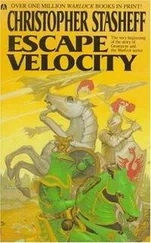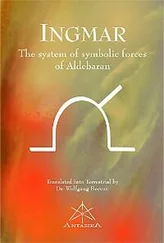“It’ll be a few minutes more,” said Grandmother.
Leonid could not imagine what difference a few more minutes would make in the quality of the stew. One might as well drink warm water and eat the vegetables raw.
“Have I ever told you about the man our village was named after?” asked Grandmother.
Grandmother only had one story, the life of Bohdan Khmelnytsky, from which she plucked and repurposed snippets. She had told every snippet, though, a dozen times. The twins could have told all the stories themselves.
This did not stop Grandmother from telling one of the stories again.
• • •
“BOHDAN ZINOVIY MYKHAYLOVYCH KHMELNYTSKY joined the Cossack army when he was still barely a boy. He’d been a scholar before that, studying with the Jesuits in faraway lands. He could have gone anywhere in Europe and done anything he wanted. In the face of all that possibility, he came home and became a soldier. And not a very good one, at least not at first. He was captured and enslaved by the Turks in his first battle, but that’s not the worst of it.
“He was then still fighting with the Poles, long before he rebelled against them. Along with his father, he traveled with the Polish forces to Moldavia, where the Ottomans had amassed a vast army. The Ottomans then were the greatest force on Earth, as mighty as the Soviets now. The Poles and the Ottomans hated each other, but I don’t know why. I don’t know that they were really much different. The Ottomans were heathens, to be sure, but are the Catholics any better? Of course, we have no religion. That’s what the Soviets tell us. But we used to, and it was neither in service of the Turks’ god nor the Catholics’. Of course it’s more similar to the Catholic god. Or it was, when we still had religion. Before it was all declared false. I think even then Khmelnytsky didn’t believe. How else could he have picked one side only later to betray it? He was a pragmatist. Do you know what that means? He did the thing that was most beneficial to him in the moment. But it turned out not to be. It turned out to cost him more than a bruised eye.”
She thrust her cooking spoon toward the older Leonid’s injured face.
“On the day of Khmelnytsky’s first battle, only five thousand men had turned out for the Poles. Barely a regiment, much less an army. The Turks, on the other hand, had over twenty thousand, more than four times as many. I wonder what Khmelnytsky saw looking over the battlefield, if he could see from his place within the ranks that his own force was so much smaller, or if his perspective was skewed. I wonder if he thought he had a chance. Because he didn’t, despite the fact that he took his first steps toward becoming a hero that day.
“The Turks advanced, or the Poles did. I don’t remember and it doesn’t matter. Who throws the first stone is less important than who throws the last. And the last stone was definitely from the sling of a Turk. Among the stones thrown in between, one felled Khmelnytsky’s father. They’d been battling side by side, holding their own, fending off wave after wave of attackers. His father, a skilled swordsman from whom Khmelnytsky learned the same skills, greeted each approaching Turk with the edge of his blade. Turkish bodies piled up in front of him, and a similar, if slightly smaller pile formed in front of his son. The Turks had to climb over their dead comrades to even mount an attack. But all around the Khmelnytskys, the Polish lines faltered, the outnumbered Polish soldiers not so deft with their swords. They fell, one by one, until the younger Khmelnytsky’s flank was revealed. A new swarm of attackers came from his side to join those who advanced from in front. Even the best soldier couldn’t fend off so many shimmering crescent blades. Khmelnytsky was wounded and fell. Even from the ground, even with part of his body split open, he kept on fighting. When he grew too weak to raise his sword, he slashed the enemies’ ankles. Then his father sprung to his side, defending his own flank and Khmelnytsky’s as well. He plucked a second sword from the clawed grip of a felled Turk, and extended one in each hand and swung them like the spokes on a wheel. The Turks who tried to get close lost their heads or were chopped clean in two. But they kept coming, and the pile of defeated enemies grew so high and dense he could no longer move. The Turks climbed over this wall of their fallen brothers, dozens of them from all sides, and pounced on Khmelnytsky’s father, and rent the swords from his hands and broke his fingers and his arms and beat him until all that was left of the man who had been Khmelnytsky’s father was a shattered, bloody lump. From underneath a pile of dead Turks, Khmelnytsky could just peek out through a gap in the tangled limbs, watching his father fall, and he memorized the events, and he muttered ‘Goodbye, Father,’ and his consciousness left him.
“He awoke later under the night sky. His wound had been bandaged, the gray cloth stained through with red in the shape of the branch from a fir tree. Slowly, the memory of his father’s death came back to him, but he did not cry. He knew already, from the language of the men around him, laughing and telling stories he could not understand, that he had been captured. He began to plot then, blood still seeping fresh from the stitched wound on his chest, how to enact his revenge. He saw, in the distance, his escape. He did not then know how far away it was. He did not know the patience it would require. But if it was one thing that allowed him to become a hero, it was his patience.
“The stew is ready.”
Grandmother ladled the clear broth into three wooden bowls, filling the last with less and keeping that one for herself.
Officially, the cosmonauts did not drink. But Mars had started sneaking vodka into Star City even before his brother’s launch, and had then somehow found a source for Scotch after his homecoming tour. It was rare to find Mars without a glass in hand. The radio control room was about the only place he stayed sober, and then only for those few days while there was a cosmonaut in orbit, sometimes for a day more, when Mars would talk to the silent capsule hoping for a response even though the air had already run out.
So Leonid was unofficially familiar with Scotch and recognized some of the bottles behind the hotel bar even if he did not know their names. He selected the green bottle with the yellow label. The bartender poured the glass near full. Leonid stared at the oily sheen swirling on the surface for a while before taking a sip. Usually, back in Star City, they downed their alcohol in one great gulp. He had never really considered the flavor before. Taken slowly, it did not burn so much. It did not catch in his throat.
After his second drink, he was joined at the bar by a pair of American travelers, a slim man and a sleek woman, who recognized him from his picture in the newspaper, or at least recognized his uniform. They introduced themselves, but he forgot their names immediately. He had trouble understanding their inflected English. Every other word seemed to be a mispronunciation, and they laughed so much that every sentence was broken in two by a chuckled pause. Leonid was fairly sure they were already drunk. Maybe their diction was usually as good as the Queen’s, but at the moment slurred.
The woman ordered a round, pointing at Leonid and asking the bartender for “whatever our comrade here is drinking.” Three new glasses arrived, filled to the lip with Scotch. Leonid raised his glass, unsure if the Americans would clink their glasses with his, but they did. He took some small comfort in this shared tradition. The couple downed their drinks in one long pull, so Leonid did the same. As soon as they set the empty glasses down, fresh drinks arrived for all three of them.
Читать дальше
